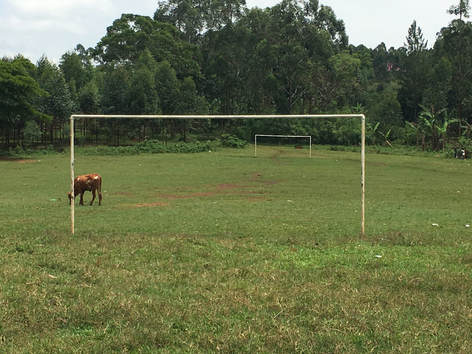|
We use next-generation and third generation metagenomic analyses to compare the presence, abundance, prevalence, and function of microbes in a natural environment. Through global collaborations with researchers and veterinarians, computational biologists, and microbiologists, we address questions about the interactions between microbes and hosts and the influence these interactions have on host (including human) evolution and health. We are currently conducting comparative studies of microbiomes in a diverse subset of hosts to determine whether microbial communities are influenced by host diet, phylogeny, habitat, body size or mating systems. Much of our research focuses on the primate gastrointestinal and reproductive tracts. More recently we are assessing microbial diversity in a complex, heterogeneous, natural community with the goal to understand and model microbial transmission to improve human and animal health.
This research is in collaboration with Steven Leigh, Brenda Wilson, Bryan White, Karen Nelson, Carl Yeoman, Suleyman Yildirim, Melissa Cregger, Susan Thomas, Andres Gomez, Katie Amato, Nam Nguyen, Dorothy Patton, Angel Rivera, Abby Asangba, Mike Nute, Negin Valizedegan and many field collaborators. This research is supported by NSF BSC 0820709 (PIs: Stumpf, Wilson, Leigh, Salyers), NSF BCS 0935347 HOMINID (Human Origins Moving in New Directions) grant (PIs: Leigh, Stumpf, Nelson, White), Bill and Melinda Gates Foundation, NIH NO1-AI70013, the UIUC Research Board, and a Carle Hospital-UIUC Critical Research Initiatives grant. |
We are an international, interdisciplinary, collaborative group of researchers examining the factors influencing microbial diversity among primates. The PMC includes microbiologists, bioinformaticists, primatologists, biologists, field researchers, and geneticists working stateside and globally to collect samples, analyze microbiomes, and develop and test theoretical models regarding microbiome diversity and their relationships to human health and disease.
If you are interested in collaborating, please contact [email protected] |
Identifying, predicting, and preventing microbial transmission in rural Uganda

In collaboration with our Ugandan partners and seed funding from the Bill and Melinda Gates Foundation, the Stumpf Lab and collaborators are working to understand microbial variation and microbial transmission in a complex, heterogenous community in rural Uganda in order to understand microbial diversity and transmission and improve human and animal health. We collect fecal samples from two sites within Kibale National Park and from three sites containing domestic animals, environmental samples, and people in adjacent villages. Using next generation sequencing, we target common microbes to assess their presence, diversity and phylogenetic relatedness across this diverse community. Applying novel phylodynamic analyses and visualization techniques newly developed in our lab, we can identify microbial phylogenetic relatedness and likely pathways for microbial transmission.
Empirical data will be used to model microbial transmission longitudinally, temporally and seasonally and assess various factors that may increase or decrease microbial transmission. The ultimate goal is to understand and model where transmission routes are most prevalent (e.g., water - humans, chimpanzees - baboons) in order to prevent transmission, inform locals, and support policy-makers to improve human and animal health. Results from this study can be extrapolated to model transmission routes of rarer microbes that are historically difficult to predict and to prepare for. Findings are also directly relevant to shed light on microbial diversity, microbe-host interactions, and microbial transmission dynamics (which are currently very poorly understood and increasingly relevant) for other global populations.
Empirical data will be used to model microbial transmission longitudinally, temporally and seasonally and assess various factors that may increase or decrease microbial transmission. The ultimate goal is to understand and model where transmission routes are most prevalent (e.g., water - humans, chimpanzees - baboons) in order to prevent transmission, inform locals, and support policy-makers to improve human and animal health. Results from this study can be extrapolated to model transmission routes of rarer microbes that are historically difficult to predict and to prepare for. Findings are also directly relevant to shed light on microbial diversity, microbe-host interactions, and microbial transmission dynamics (which are currently very poorly understood and increasingly relevant) for other global populations.
Investigating host-microbial diversity to understand female dispersal and social relationships among wild chimpanzees.
In collaboration with Dr. Kevin Langergraber, we employ novel microbiome and autosomal genotype-based analyses to investigate patterns of female dispersal and group composition across chimpanzee communities in Kibale National Park, Uganda. In addition, we are examining social relationships of habituated chimpanzees, to assess the quality of female social relationships and test the hypothesis that female social bonds form between chimpanzees that have emigrated from the same natal community. This interdisciplinary, collaborative project will provide answers to fundamental questions about dispersal strategies, female group composition, and the nature, longevity and physiological consequences of female dyadic relationships in chimpanzees. In short, this work will contribute to a greater understanding of female chimpanzee relationships across their lifespans, dispersal strategies, and the evolutionary basis for extensive affiliative relationships among non-kin adult chimpanzees, and their potential effects on female fitness.
This project is supported by NSF BCS 1441409 (PIs: RM Stumpf, K. Langergraber).
This project is supported by NSF BCS 1441409 (PIs: RM Stumpf, K. Langergraber).
Human Microbial Variation
Preterm birth occurs in an average of 12% of pregnancies and affects some populations at much higher rates (up to 20% among African Americans). Mortality rates are significant and health care costs run over $5.8 billion. Prevention of preterm birth is challenging because overt symptoms are lacking and we have few predictive and preventative tools. One factor associated with preterm birth is vaginal microbiome disruption. Vaginal microbiomes vary across human populations, yet the factors influencing these patterns of variation remain unclear. We are focused on identifying the genetic, microbial and environmental factors affecting variation across human vaginal microbiomes with the goal of mitigating the risk for preterm birth, particularly among high-risk populations.
This project is in collaboration with Derek Wildman, John Polk, Nam Nguyen, Abby Asangba, Innocent Afeke and Faith Teodoro.
This project is in collaboration with Derek Wildman, John Polk, Nam Nguyen, Abby Asangba, Innocent Afeke and Faith Teodoro.
